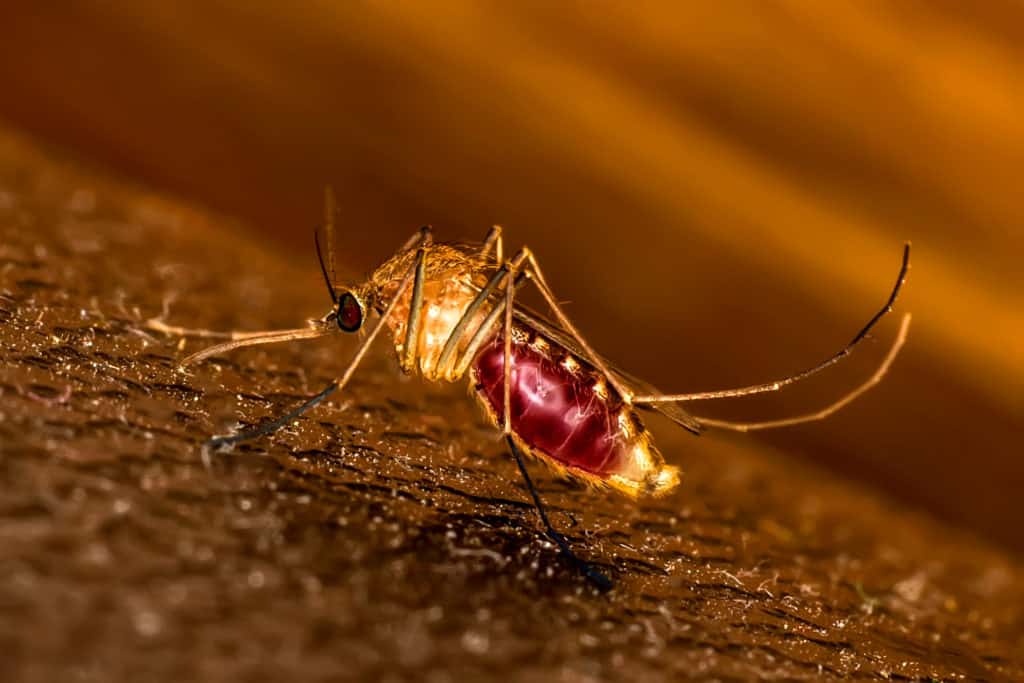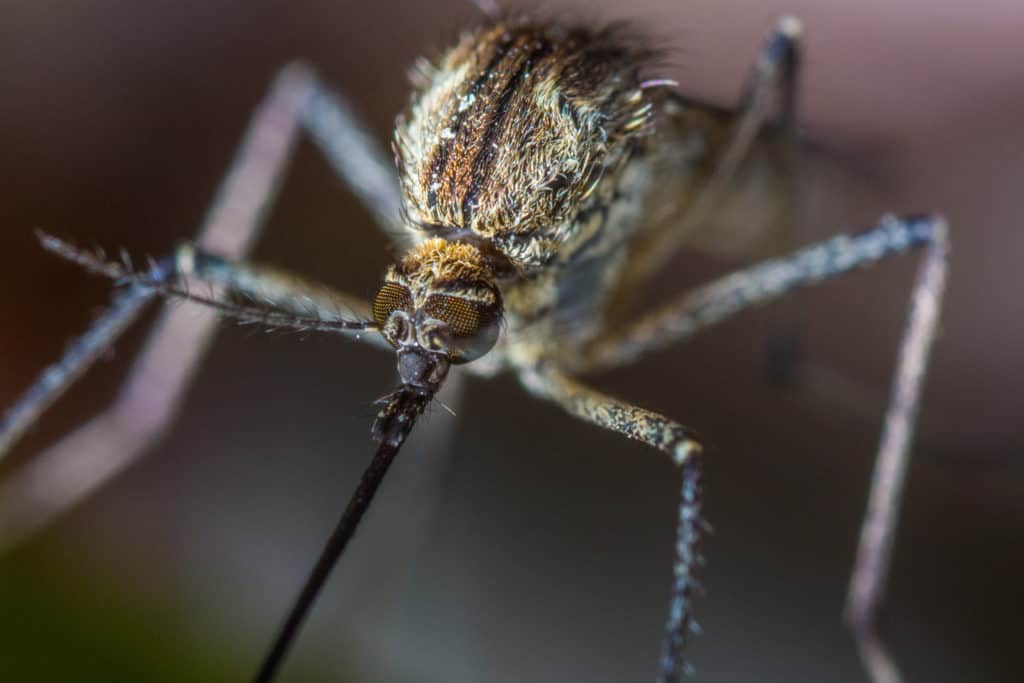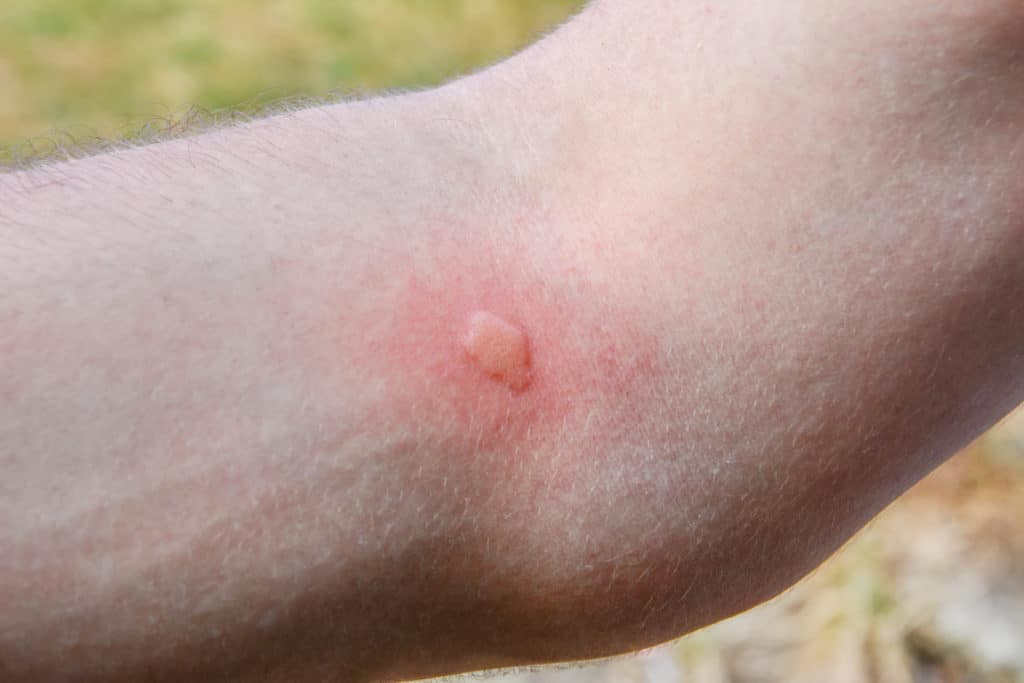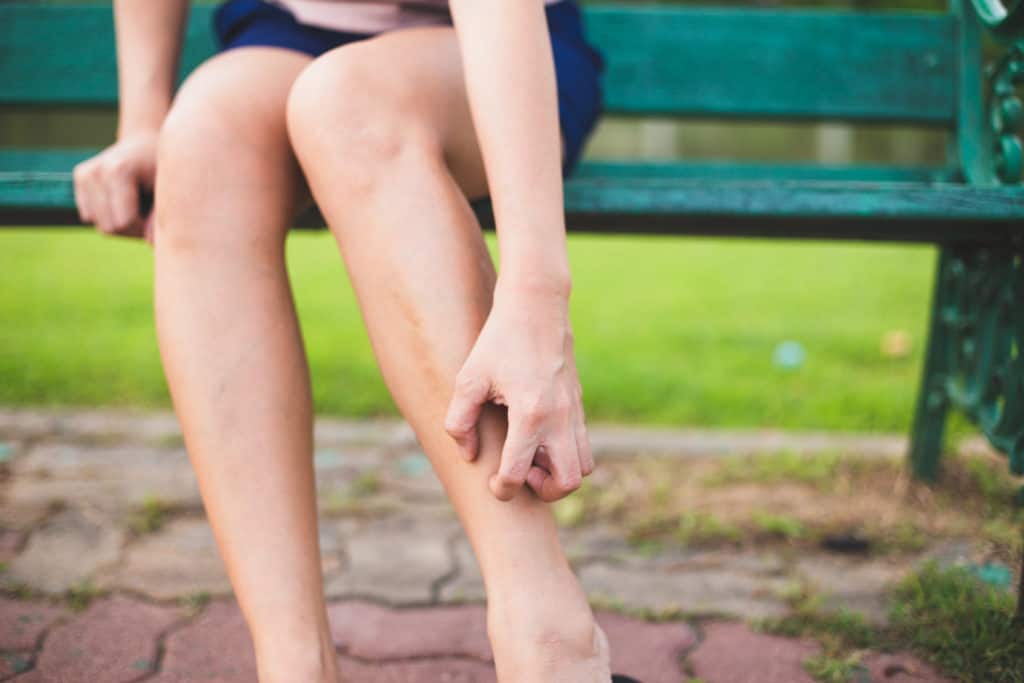Why Do Mosquito Bites Itch?
Why Do Mosquito Bites Itch?
The Itch Felt ‘Round the World
Mosquitos are notoriously annoying pests and infamous vectors of disease. They have been biting since the Jurassic Period roughly 210 million years ago and have adapted throughout time to continue to pester all living things. They have also managed to spread across all of the continents on Earth (save for Antarctica) and have evolved into roughly 3,500 different species.
In the United States, the three most common species of mosquito that bite humans are the Aedes, Anopheles, and Culex. These insects are prolific breeders that are able to produce between 50 – 500 offspring in a single brood and up to 10 broods in a lifetime. In order to produce their eggs, female mosquitos require a rather large amount of both protein and iron, which are both present in blood in high doses, which is why we are a prime target for these tiny pests.

The Bite that Keeps on Itching
As exceptionally tiny creatures, mosquitos have to exercise caution in daily life to avoid being squished. In a fairly recent study, it was even discovered that mosquitos would more often avoid people that constantly swat, and instead opt for an easier target. So, once they have found someone to bite, they attempt to approach with as much caution as a buzzing insect can, and they begin to feed, hoping you don’t notice. But the feeding does not begin immediately…
Mosquitos have a straw-shaped appendage for their mouths, known as a proboscis. The proboscis is actually made up of six sharp needle-like components called stylets that pierce the skin of their prey. It can take a moment for insertion and it is the most dangerous moment of their feeding process as the initial bite is often felt by their victim. Once the proboscis is inserted, they immediately inject their saliva into the wound, creating a numbing sensation to mask their presence. The enzymes in their saliva also improve blood flow, acting as an anticoagulant so that the blood they’re sucking doesn’t clot. Once they’ve begun feeding, the process actually takes the mosquito roughly three minutes in order for their bellies to be full and, during this time, they are risking death by swatting. If they’re lucky enough to survive the feeding, they’ll leave behind an itchy red bump, but why is that bump itchy?

The Itch Behind the Scratch
In addition to acting as an anti-coagulant and anesthetic, the injected saliva contains proteins that trigger a fairly mild immune response. This response involves the immune system releasing a histamine, which helps white blood cells access the affected area and leads to the inflammation. The histamine also sends a signal to the nerves around the bite and it is this very signal, along with the swelling, that causes the itchy sensation.
While this reaction is practically universal for people, there are a few rare cases where people’s immune systems do not have this reaction. Some people are born with this immunity to mosquito saliva, while others have actually been found to build up a tolerance over significant time. For most people however, this immune reaction will last for a few days to a week depending on whether or not the bite area is left alone or not.

Stop the Scratching!
Almost everyone’s parents have told them not to scratch their mosquito bites… well, turns out they were actually on to something. Scratching your skin when it’s already irritated, increases the inflammation which, in turn, causes a corresponding increase in the itching sensation – ultimately leaving you in a spiral of maddening itchiness.
Furthermore, scratching greatly increases your risk of developing an infection as you can easily break the skin of the irritated area. If infected, the mosquito bit can take a significantly longer time to heal and may even require antibiotics in more serious cases.

Citations
Burgess, L. and Seladi-Schulman, J. Ph.D. (2018) Why do mosquito bites itch? Causes and treatment, Medical News Today. MediLexicon International. Available at: https://www.medicalnewstoday.com/articles/320979#overview (Accessed: January 19, 2021).
How Mosquitos Got Their Taste for Human Blood – What it Means for the Future (2020) SciTech Daily. Cell Press. Available at: https://scitechdaily.com/how-mosquitoes-got-their-taste-for-human-blood-what-it-means-for-the-future/ (Accessed: September 2020).
Mosquito Bites (2020) Mayo Clinic. Mayo Foundation for Medical Education and Research. Available at: https://www.mayoclinic.org/diseases-conditions/mosquito-bites/symptoms-causes/syc-20375310 (Accessed: January 19, 2021).
Mosquito-Borne Diseases (2016) Centers for Disease Control and Prevention. National Institute
for Occupational Safety and Health. Available at: https://www.cdc.gov/niosh/topics/outdoor/mosquito-borne/default.html (Accessed: April 2020).
Pointer, K. and Sullivan, D. Ph.D. (2019) Why Mosquito Bites Itch and How to Stop Them, Healthline. Healthline Media. Available at: https://www.healthline.com/health/why-mosquito-bites-itch#outlook (Accessed: January 2021).
Saplakoglu, Y. (2018) Here’s Why Mosquito Bites Itch for Such a Long Time, LiveScience. Available at: https://www.livescience.com/62601-why-mosquito-bites-itch.html (Accessed: January 19, 2021).
What Happens to Your Body When a Mosquito Bites You (2019) YouTube. Brightside. Available at: https://www.youtube.com/watch?v=91X8RcJBFwA (Accessed: July 2020).
Pest Prevention Tips for Snowy Days
Pest Prevention Tips for Snowy Days Pest Prevention Tips for Snowy Days Summary: Snowy weather pushes pests to seek warmth and shelter indoors, [...]
How Do Ants Spend Winter? What Homeowners Should Know About Ants in Winter
How Do Ants Spend Winter? What Homeowners Should Know About Ants in Winter How Do Ants Spend Winter? What Homeowners Should Know About Ants in [...]
Termites Are Awful Winter Pests – Here’s Why
Termites Are Awful Winter Pests – Here’s Why Termites Are Awful Winter Pests – Here’s Why Summary: Termites can remain active through winter [...]
How to Maintain a Pest-Free Kitchen for the Holidays
How to Maintain a Pest-Free Kitchen for the Holidays How to Maintain a Pest-Free Kitchen for the Holidays Summary: This blog educates homeowners [...]
Pests That Invade Packages & Boxes: How to Prevent Hidden Infestations
Pests That Invade Packages & Boxes: How to Prevent Hidden Infestations Pests That Invade Packages & Boxes: How to Prevent Hidden Infestations Summary: [...]
Keep Pests Out of Your Holiday Gatherings
Keep Pests Out of Your Holiday Gatherings Keep Pests Out of Your Holiday Gatherings Summary: The holiday season is all about good food [...]

